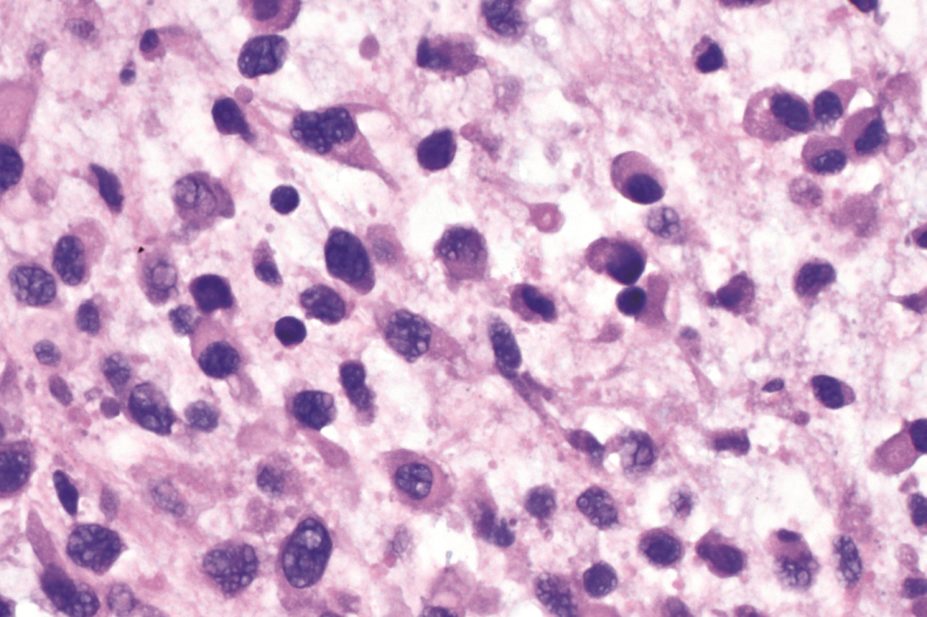
Nephron / Wikimedia Commons
The US Food and Drug Administration has approved the immunotherapy atezolizumab (Tecentriq) to treat urothelial carcinoma, the most common form of bladder cancer.
The drug, which is manufactured by Genentech, is the first PD-L1 inhibitor to be approved by the FDA and the first PD-1/PD-L1 inhibitor drug to be approved for this type of cancer. Drugs targeting the PD-1/PD-L1 pathway have already been approved for other cancers and are proving to be remarkably successful in improving the survival of some patients with melanoma in particular.
Atezolizumab targets the PD-1/PD-L1 pathway (proteins found on the body’s immune cells and some cancer cells), and by blocking these interactions, it may help the body’s immune system fight cancer cells.
It was approved on 18 May 2016 for the treatment of patients with locally advanced or metastatic urothelial carcinoma whose disease has worsened during or following platinum-containing chemotherapy, or within 12 months of receiving platinum-containing chemotherapy, either before (neoadjuvant) or after (adjuvant) surgical treatment.
The FDA, which is responsible for evaluating the safety and efficacy of medicines in the United States, designated atezolizumab a breakthrough therapy for priority review and it was approved on the back of a single clinical trial. This single-arm trial involved 310 patients with locally advanced or metastatic urothelial carcinoma and measured the percentage of patients who experienced complete or partial shrinkage of their tumours (objective response rate).
A total of 14.8% of patients experienced at least a partial shrinkage of their tumours, which lasted from between 2.1 months to more than 13.8 months at the time of analysis.
The study also looked at the difference in effect according to ‘positive’ or ‘negative’ expression of the PD-L1 protein on patients’ tumour-infiltrating immune cells. In patients who were classified as ‘positive’ for PD-L1 expression, 26% of patients experienced a tumour response, compared to 9.5% of patients who were classified as ‘negative’ for PD-L1 expression.
This suggests that the level of PD-L1 expression in tumour-infiltrating immune cells may help identify patients who are more likely to respond to the drug. Therefore, the FDA has also approved the Ventana PD-L1 (SP142) assay, marketed by Ventana Medical Systems, to detect PD-L1 protein expression levels on patients’ tumour-infiltrating immune cells and help physicians determine which patients may benefit most from treatment.
Mark Linch, consultant medical oncologist at the University College London Cancer Institute at University College Hospital in central London, says atezolizumab’s approval is “wonderful news”.
“The drug works by harnessing the patient’s own immune system to attack the bladder cancer and unlike the standard treatment of cytotoxic chemotherapy, atezolizumab is really well tolerated by patients,” he says.
“Enticingly, it also looks as though some patients get durable benefit which would be truly fantastic for this disease. The FDA has recognised the importance of this new treatment by designating it a breakthrough therapy and giving accelerated approval. I hope that the European Medicines Agency can be similarly proactive in their assessments of atezolizumab,” he adds.
The most common side effects of treatment with atezolizumab are fatigue, decreased appetite, nausea, urinary tract infection, fever and constipation. It also has the potential to cause infection and serious side effects that result from its effects on the immune system (known as ‘immune-mediated side effects’). These severe immune-mediated side effects involve healthy organs, including the lung, colon and endocrine system.


